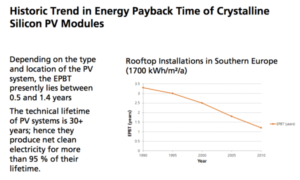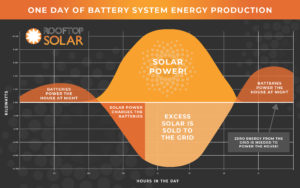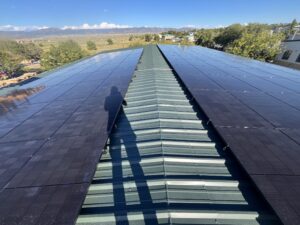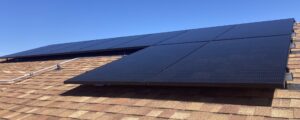When choosing to go solar, the benefits far outweigh the costs. Along with those amazing financial benefits of a high ROI (return on investment), you are also taking advantage of some great environmental and health benefits. For a lot of consumers, a product’s environmental and overall health impacts can be an important factor in the decision-making process.
Energy Payback
When your solar panels produce energy, they are producing zero emissions that would otherwise contribute to climate change and various health issues. Did you know that if we captured just one hour of Earth’s solar energy, we would be able to produce enough energy to power the whole world for a whole year?! Getting energy from the sun, the most abundant and reliable resource is how solar panels can create energy without emitting harmful molecules into the atmosphere.
While no emissions are produced when generating electricity through solar power, solar panels’ production and recycling process is a different story, and the manufacture of solar panels is not without its environmental impact. The environmental impact is calculated by using a concept called the energy payback time (EPBT) which is the amount of energy required for a renewable energy system to produce the same amount of energy that is required to manufacture the system itself.
Only renewable energy sources can acquire an EPBT because fossil fuel energy sources are unable to ‘pay back’ energy. They continuously emit carbon and other pollutants into the atmosphere. The EPBT is used to tell the amount of time it will take to pay back the energy used in the production of the panels. The shorter the EPBT, the better a product is for the environment. There are a few factors that can cause the calculation of the EPBT of solar to vary:
- Solar panel efficiency – If placed in an especially sunny area, with highly efficient panels, then the EPBT is going to be shorter.
- How the panels are produced – Less energy is required to produce thin-film modules as opposed to more traditional silicon modules, thus giving thin-film a shorter EPBT than silicon.
- Materials needed – some materials require more resources and energy to mine, giving a higher EPBT.
- Where they are made – The simple fact that solar panels need to be transported from where they were manufactured to where they’ll be installed uses energy and resources that emit pollutants into the atmosphere.
A net positive environmental impact for solar
As there are a few factors that affect the EPBT, it is important to realize that solar has come a long way in making a positive impact on the environment. Fifty years ago, there was a forty-year EPBT for solar, and now that time has decreased drastically with some modules having an EPBT of just six months! It is a constant battle for manufacturers to race to see who can make the most efficient panels. A higher efficiency over the thirty-year lifespan of your solar system will allow for even less harmful pollutants into the atmosphere, continuing a decrease in solar’s EPBT. Just in the last ten years, there has been a 62 percent reduction in how much material is used in the production of silicon solar cells. Fewer resources and less energy used to produce these modules in the manufacturing process contributes to an even shorter EPBT. For the average homeowner, making the switch and generating energy through the use of solar for thirty years is the energy savings equivalent to taking two vehicles off the road for their lifetime. You can feel good about going solar knowing that the environmental benefits far outweigh the drawbacks.

https://deepresource.wordpress.com/2013/12/26/solar-panels-energy-payback-time/
Health Benefits
Due to fewer pollutants in the air causing respiratory and cardio health issues solar can have significant health benefits on top of just the environmental benefits. If enough people switch to solar, a significant reduction in nitrous oxides, sulfur dioxide, and other harmful particles can greatly reduce the effects of some major health respiratory conditions.
As we progress toward building a better future for the environment, it is important to consider the environmental impact of your solar system. When getting solar quotes from companies, feel free to ask what the costs and benefits are to having a more efficient system. Get a quote today with Rooftop Solar and we can tell you just how much you will save (financially and environmentally) by switching to solar!


